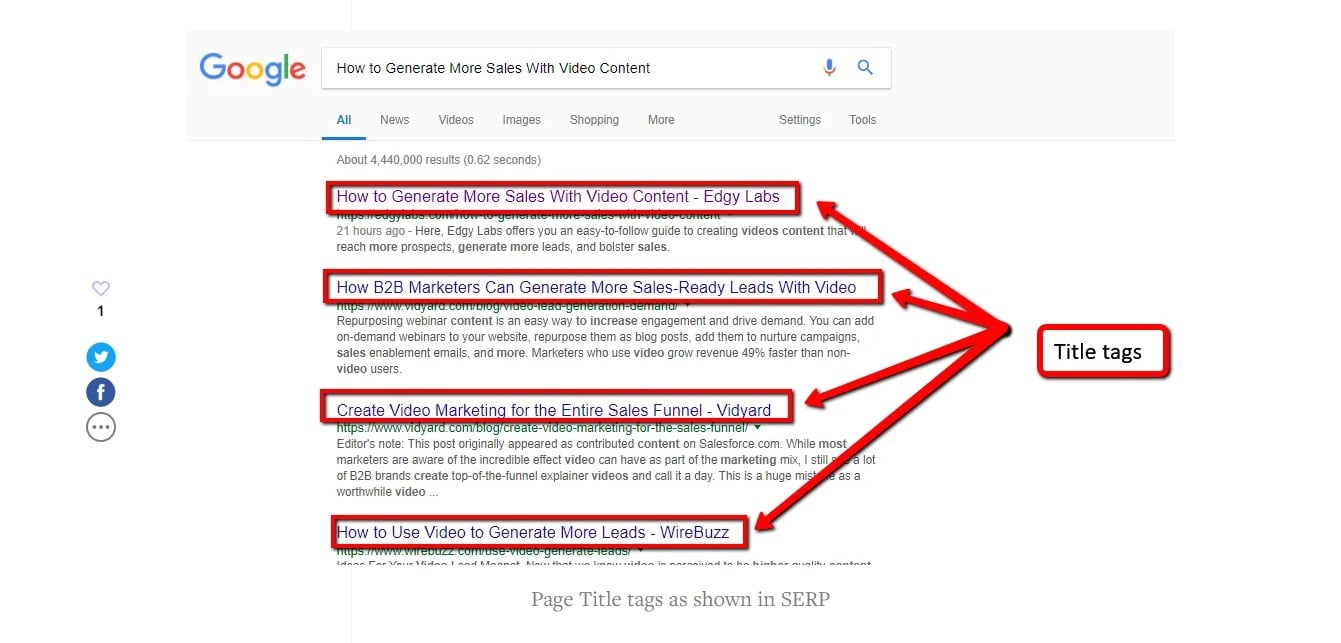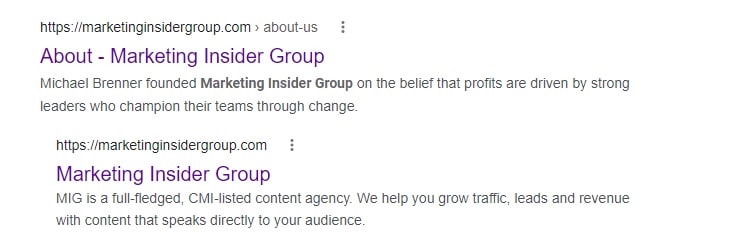
How to Write the Perfect Page Title for SEO
What’s in a page title?
As it turns out, quite a lot. Your page titles not only tell the world what your page is about, they’re a key factor in whether anyone ever actually visits it.
There’s more to page titles, too, than simply writing a perfunctory description about the content on your page. They need to be crafted with your audience in mind, and they need to be optimized for search engines to find and index your web pages. They also need to be compelling enough to grab people’s attention on crowded search engine results pages.
If that sounds like a lot — not to worry. When it comes to creating great page titles for SEO, it’s all about knowing the rules (good news: the rules aren’t complicated).
In this article, we’ll give you a brief overview about why page titles are so important to your larger SEO efforts. Then, we’ll walk through 7 tips you can use to create SEO-boosting titles right away.
Quick Takeaways
- Page titles tell search engines what a page is about so they can find, index, and rank them on SERPs.
- Page titles are the deciding factor in whether or not a user clicks through to your site.
- It’s important to be specific and compelling when writing page titles, focusing on value and purpose.
- Your page titles should always include your focus keyword.
- Google will cut titles off after 60 characters. It’s important to keep page titles concise.
- Page titles should always be crafted for humans first, search engines second.
What’s the deal with page titles and SEO?
Your page title — also called your “seo title” or “title tag” — is an important part of on-page SEO and tells search engine crawlers what your page is about. It’s well known that page titles are one of the top Google ranking factors contributing to your position search engine results pages (SERPS).
When you conduct a search on Google, page titles (or title tags) are what you see in blue text above the meta description.

Image Source: Edgy
There are two other primary places your page title will be visible: on social media (when your page is shared) and on browser tabs.
But the real question is: why are your page titles so important?
First, let’s circle back to search engines. As mentioned, page titles tell search engine crawlers what your page is about. Without this information, search engines can’t find, index, and rank your content. Given that 93% of all online experiences begin with a search engine, your content is virtually invisible without SERP rankings.

Image Source: WebFX
Your page titles are also what grab people’s attention when they find them through search. It’s the deciding factor in whether or not they’ll click and actually visit your site.
Page titles should never be an afterthought. In the next section, we’ll walk through X ways to write page titles intentionally for SEO success.
How to write the perfect page title for SEO
Be specific
What is the purpose of your page?
You should always ask yourself this question when you’re coming up with your page title. Think very specifically about what purpose this page serves for your audience. Your page title should clearly communicate that purpose so that users both find your page and click on it to find what they need.
Don’t confuse the purpose of your page by trying to do too much in one place. A good rule of thumb to follow is this: if you’re having to use “and” to include multiple topics in your page title, consider whether it may be better to create two separate pages.
Be compelling
Remember: your page title is what potential customers decide whether they’ll click through to your page. When you’re creating titles, consider whether your title will be compelling to its intended audience.
Here are a few tips you can use to create compelling titles:
- Include your value proposition. In other words, tell the user exactly what they’ll get from clicking through to your page.
- Ask a question. This creates intrigue and encourages users to click for an answer.
- Use numbers. Research has shown that it works in earning more clicks. For example: “7 Tips for Writing a Great Blog Post” is more compelling than simply “Tips for Writing a Great Blog Post.”
- Include strong language. Get creative with adjectives and evoke emotion. For example: 3 Types of Blogs Readers Hate (we made that title up, but the “hate” is an attention grabber).
Make every page unique
Every page on your website should serve a unique purpose. When they do, it makes your website easier to navigate for your visitors. It also avoids the problem of traffic cannibalization, which occurs when multiple pages from a single domain rank for the same keywords.
There are times when this is unavoidable. For example, Marketing Insider Group’s blog has several blog posts covering topics about SEO, and thus ranking for SEO. That said, it’s important to always be aware of potential cannibalization and whether the right users are getting to the right pages.
When it comes to your main website pages, you should be even more careful. You want users to get to the page that specifically answers their inquiry and drives them toward taking the next appropriate action on the customer journey.
Use keywords
An easy one: does your page title include your focus keyword? If not, change it up! Your focus keyword should always (repeat: always) be included in your page title.
Be smart about using your brand name
This one can be tricky. On one hand, including your brand name can increase your brand awareness and draw people to your site. On the other hand, it can seem tacky to throw your brand name on every title rather than relying on your compelling content to do the work.
Here’s what I recommend:
For homepages, include your brand name. These are pages that provide high-level information about your brand, so it makes sense for your brand name to appear. Below is an example from MIG — search results for our “about” page include our brand name.

Same goes for product and service pages. While you probably want to highlight the product or service first, your brand name can be included. You’ll see below how MIG did this for our SEO Blog Writing Service page.

When it comes to your blog and other marketing content, I recommend leaving your brand name out of the page title. In those cases, users are looking for answers and solutions — not specific companies. Instead of adding your brand name, write a compelling blog title and let your content speak for itself. Example:

Be mindful of length
Google requires us to be concise in our page titles. In fact, they’ll cut you off after about 60 characters. So, while it might be tempting to fit everything in your title, remember our first two tips — be specific and compelling — and add this: don’t leave users guessing.
Edit your page titles down until you’re sure the entire title (or nearly all of it) will appear on SERPs. Most content management systems have a preview function to help you check before you publish.
Write for humans first
The funny thing about search engines is this: we depend on them to find and rank our content, but we should never actually write for them.
That’s right. Writing for search engines can actually have a negative impact on our SEO results. Avoid keyword stuffing or otherwise trying too hard to please Google.
Instead, focus on value for your audience. Yes, you should follow general SEO best practices. But beyond that, Google really wants to see page titles (and pages) that are relevant and deliver high value to users. And guess that? They’re smart enough to recognize it. Using AI technology and ever more complicated algorithms, Google recognizes a page title that will be valuable for the humans using their platform.
So remember: humans first. Value is the foundation of your content’s success. Once you’ve got it, then address SEO.
Over to you
Writing great page titles can seriously boost the ROI on your content marketing efforts — but only if you have great content in the first place. Did you know Marketing Insider Group’s team of writers and SEO experts can deliver you optimized, ready-to-publish content every single week for a year?
Check out our SEO Blog Writing Service or schedule a quick consultation with me to learn more and get started!






